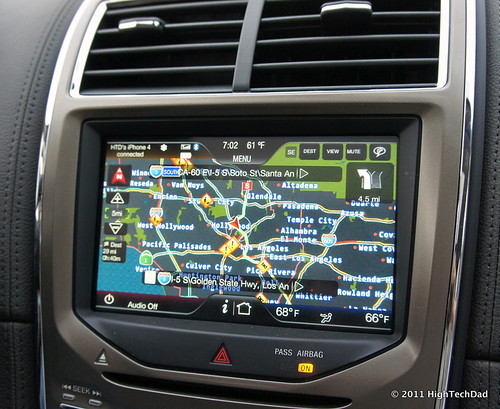GPS has become such an ever-present fixture in modern culture that it’s easy to forget just how innovative it actually is. Short for global positioning system, GPS is a technology that uses satellite systems to locate precise positions on the globe, and through detailed global mapping allows for accurate navigation from point A to point B.
GPS is widely available at the consumer level, either via standalone GPS devices or as technology integrated into smartphones. It’s also become a cornerstone of several different industries. But behind that GPS dependence is a complex but fascinating technology provided through fairly high-level science. Here’s a breakdown of how GPS works and who continues to benefit from it.
How GPS works
GPS works through the use of satellites fixed in Earth’s orbit. These satellites manage a constant flow of information and signals coming from Earth as well as from other satellites. A signal is sent up into outer space, and multiple satellites provide a precise location of that signal through a process known as triangulation. That location can then be placed on detailed maps of the globe, and GPS devices can even differentiate between a car, bicycle or pedestrian — all of which have different routes of travel available to them.
Every GPS tracker processes these signals according to their own unique technology, but the science and the end result are more or less the same. And a good GPS system can be extremely accurate, pinpointing a signal’s source to within five to 15 feet of where it stands.
Who uses GPS?
Many cars and smartphones are already outfitted with GPS units designed for basic transportation and directions. But several industries depend greatly upon GPS technology. Law enforcement agencies use GPS technology all the time, whether to locate an individual or item according to GPS coordinates or to covertly track a subject of interest.
Hunters and fishers frequently use GPSÂ as a road map while they go to work in forests, on bodies of water and even on the open sea. This is a much more effective method of navigation than using a compass or other tools, and having easy access to GPS coordinates can help rescue parties or other entities come and find you if you need assistance of any kind.
Aviation professionals and even mining companies use GPS for essential aspects of their operations, including reaching locations that are not physically marked but can be identified by their GPS coordinates. And fleet tracking companies also use GPS technology to track commercial vehicles as they move about the country. This makes fleet management more efficient, since those companies can quickly call up any vehicle and determine its current location and its estimated time of arrival. GPS also allows traffic detours, adverse weather and other complications to be more easily relayed to drivers in specific locations.
While other technologies continue to evolve, GPS has only become a more integral part of daily life. From the average daily commuter to a commercial trucking company, GPS cuts down on mistakes, improves efficiency and even promotes greater safety, whether on the road or in the untamed wild. It’s amazing to think of how many times in a single day a single person transmits a message into outer space, but it’s now an unquestioned part of daily living.
